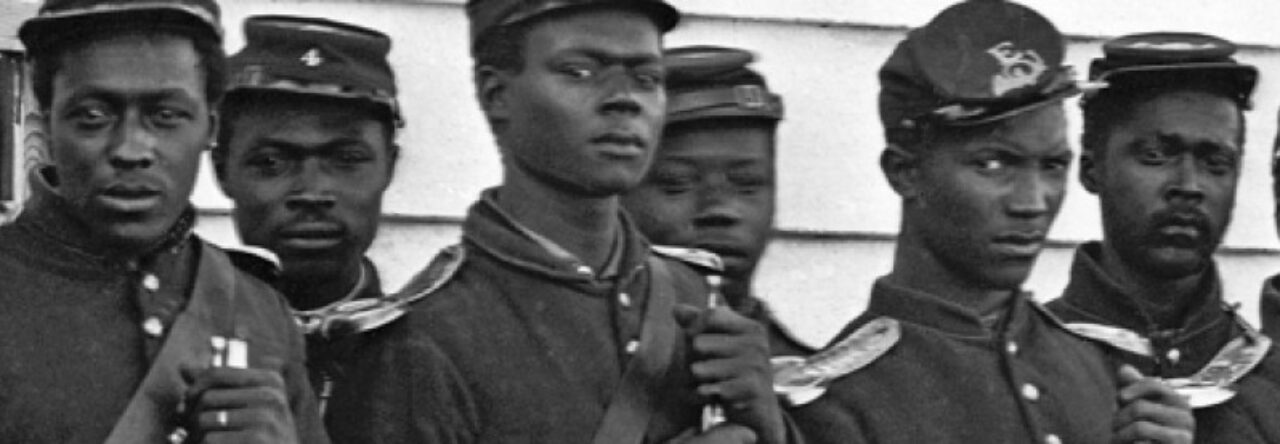While reading For Cause and Comrades , the issue of social class and education was raised to which McPherson states the correlation ” should not be discounted”. Implied is that those with a better education and higher social status tended to be better fighters and not skulkers. And yet, after the initial flag waving excitement of the initial call -up for war passed, the armies of both sides were left to fill their ranks by conscription and/or the use substitutes (McPherson does note that the middle class Irish and Scotch/Irish brigades of the famed Irish Brigade and Louisiana Tigers should give one pause). In the struggle to understand the necessity and the accompanying brutality of war it is fascinating to consider that correlation. Moreover, it seems to call into question F. Douglass’ comment read in this morning’s discussion about the benefit of enlisting former slaves in the cause- many of whom were not educated, nor possessing tangible social status on either side.
Was Douglass wrong?
Is McPherson wrong in suggesting that the correlation existed?
Rich man’s war – poor man’s fight –
To this traditional are we asked to add… smart man’s victory?
Category: Secondary Sources
Enjoyed the lecture by Catherine Clinton, the ability to come to an depth of understanding beyond the iconic images that is usually displayed during Black History Month. I admired the way that Clinton was able to construct the life of Tubman from sources that she was already familiar with and come away with another construct of a story. And, the ability to find the history when your subject did not leave written documentation is a testament of telling the narrative of all people. Reminds me of last summer when I learned about a slave that made pottery and the stories he was able to leave with his work.
Carolina Clay: The Life and Legend of the Slave Potter Dave by Leonard Todd
Dave the Potter; Artist, Poet, Slave by Laban Carrick Hill and Bryan Collier
